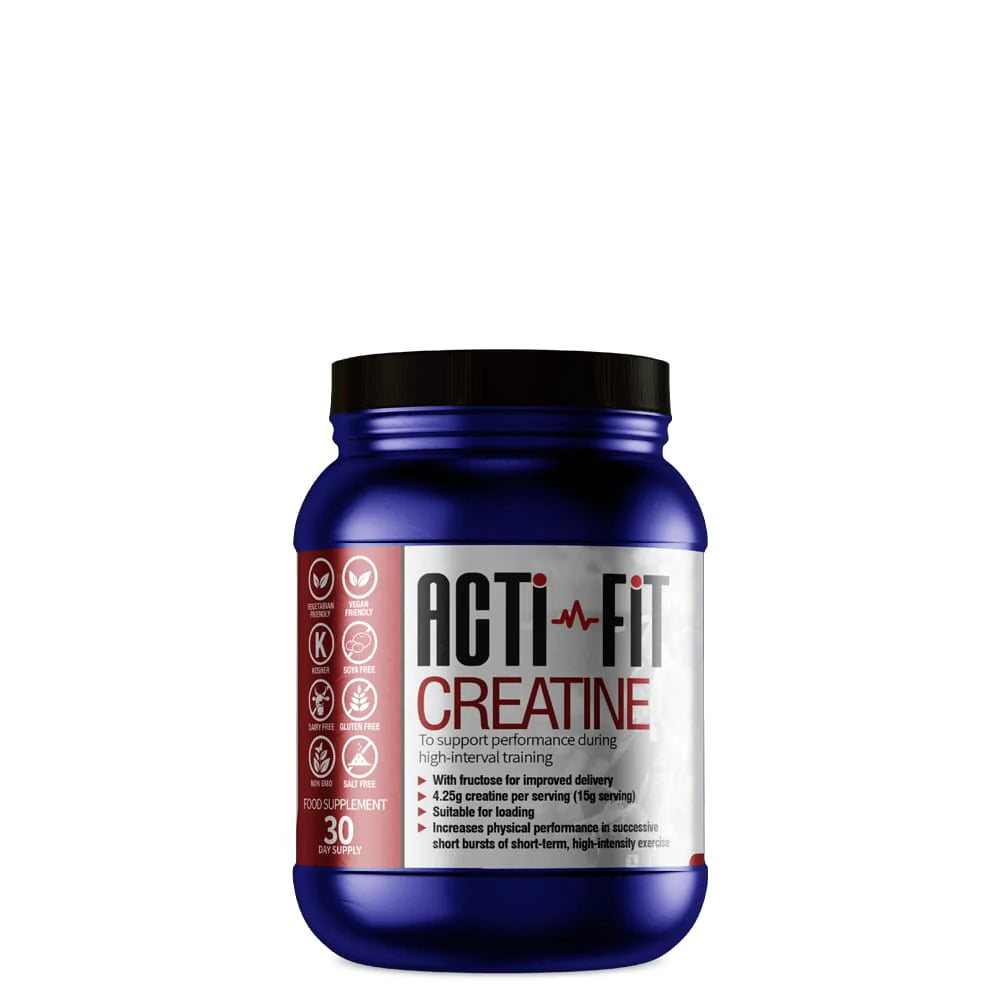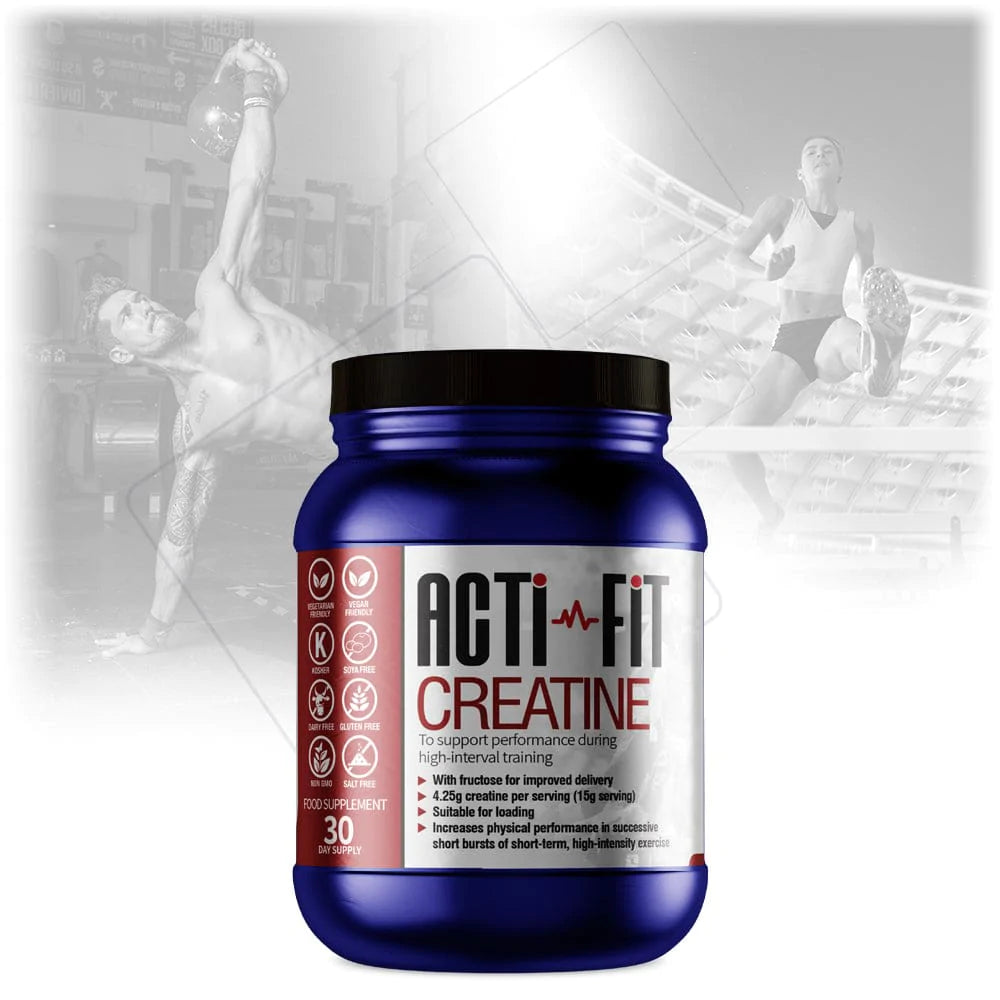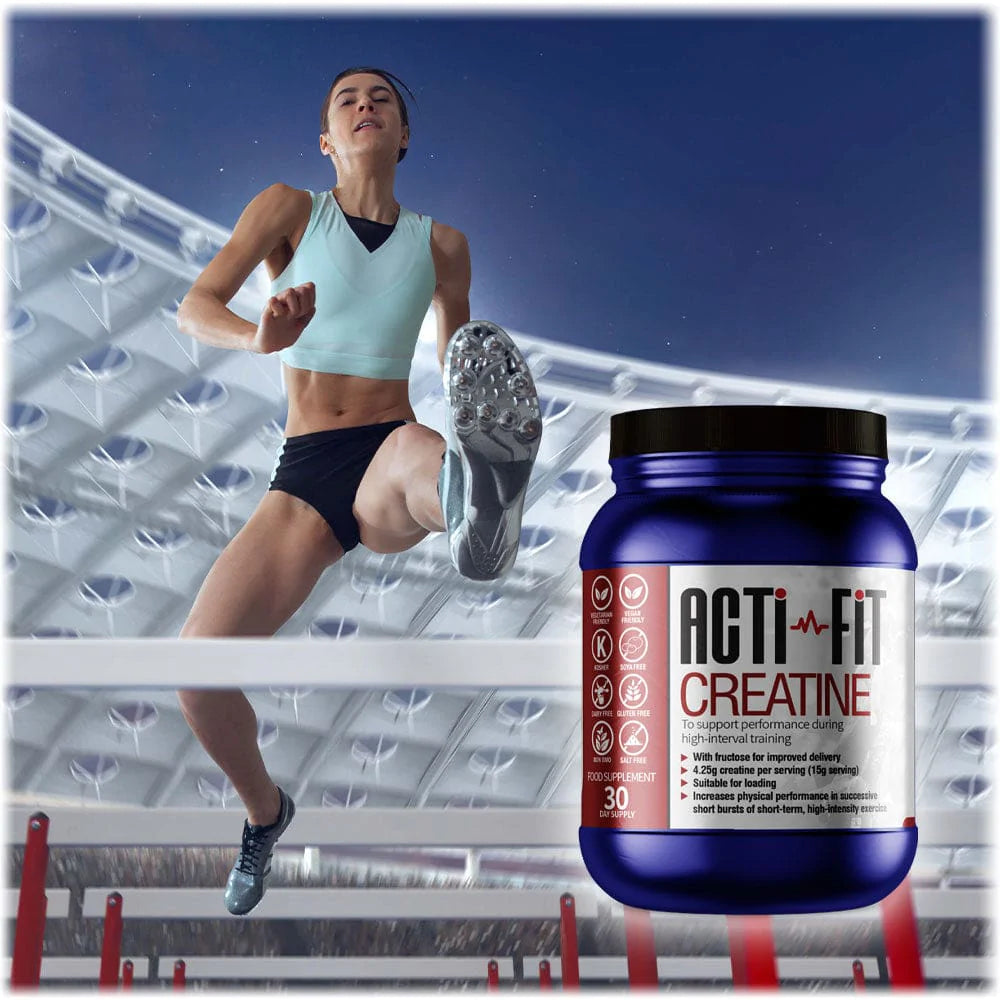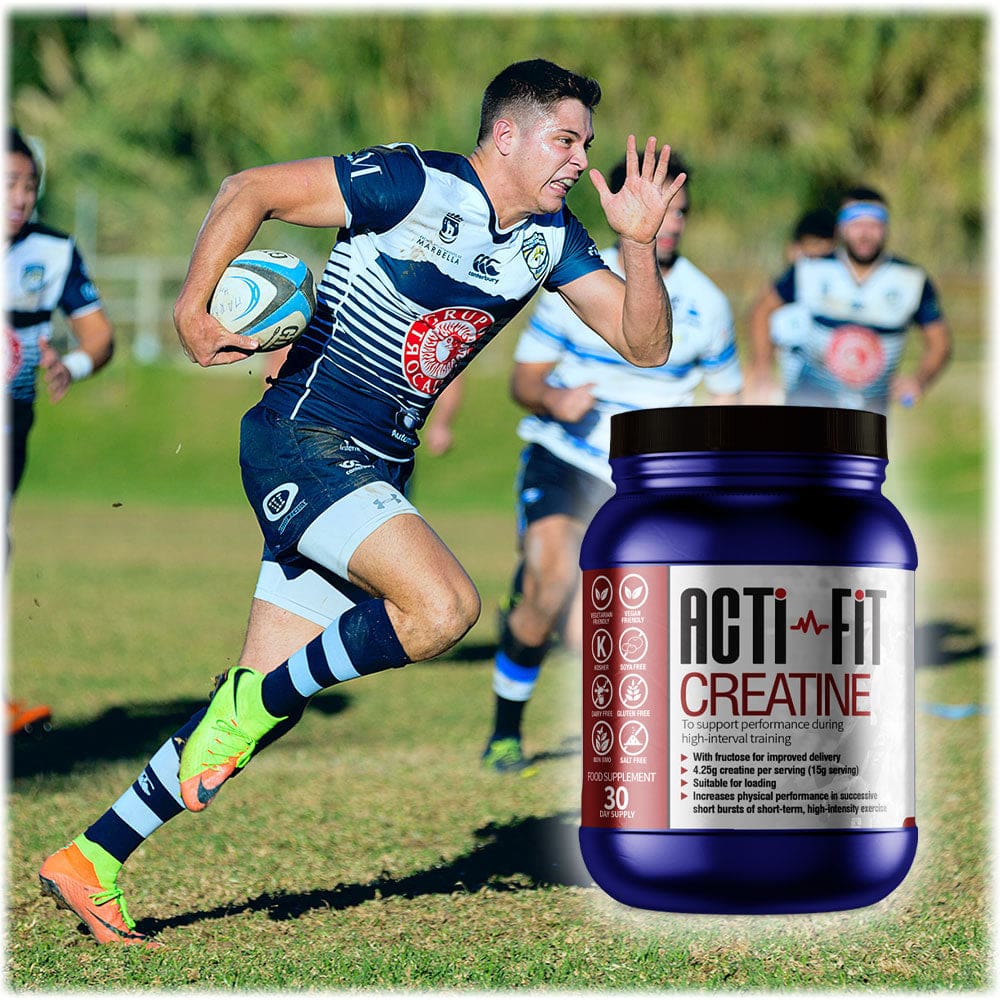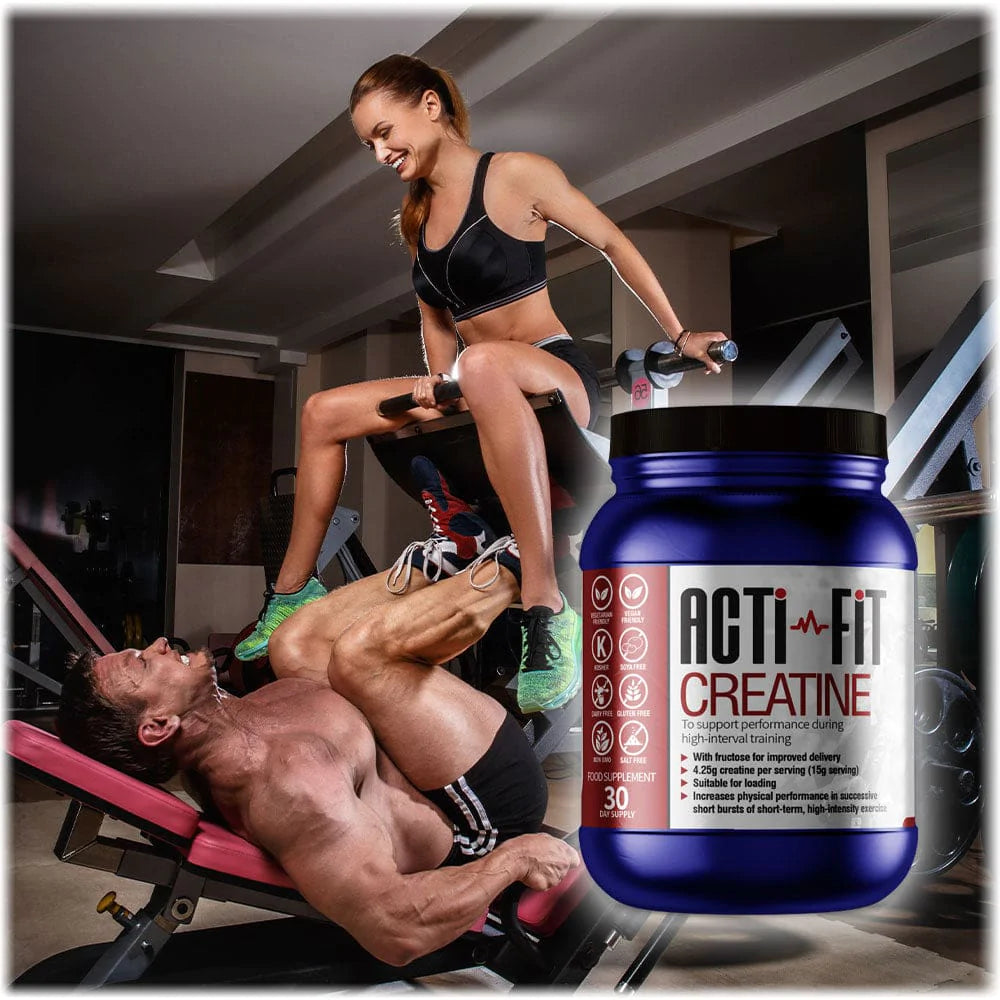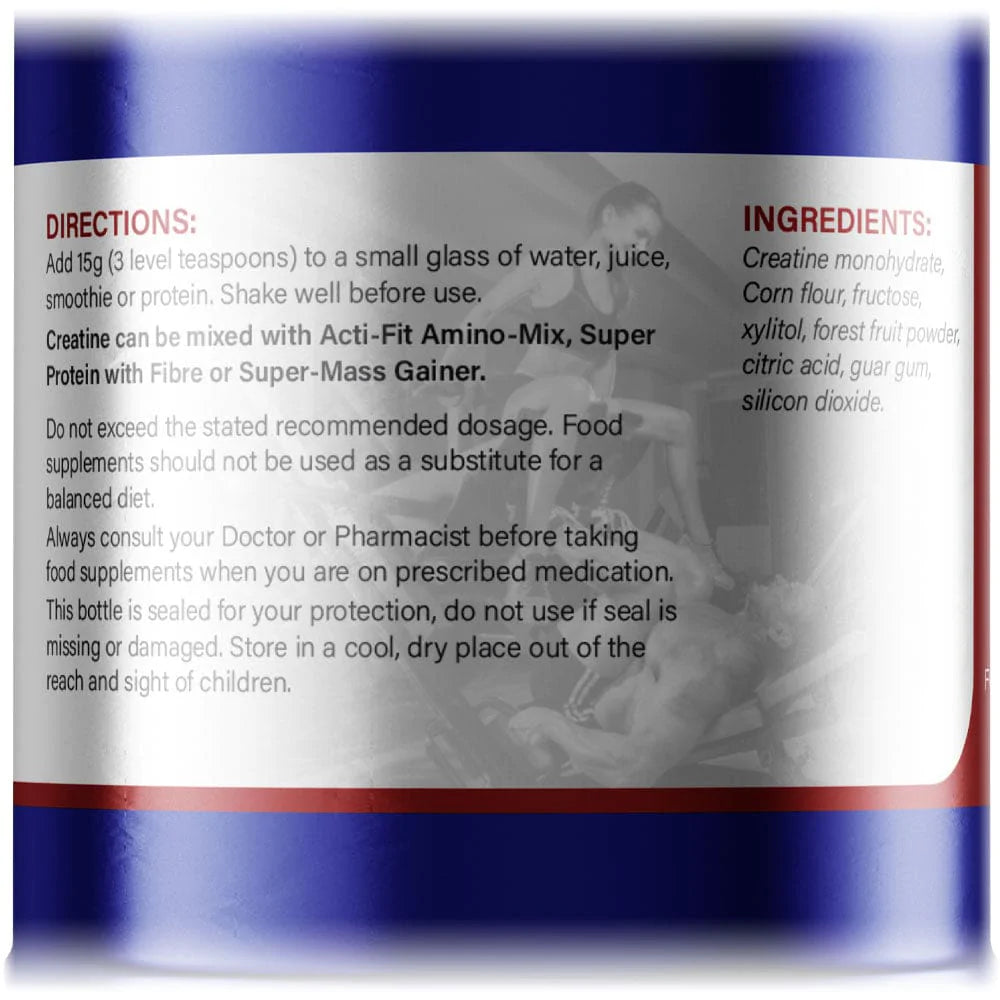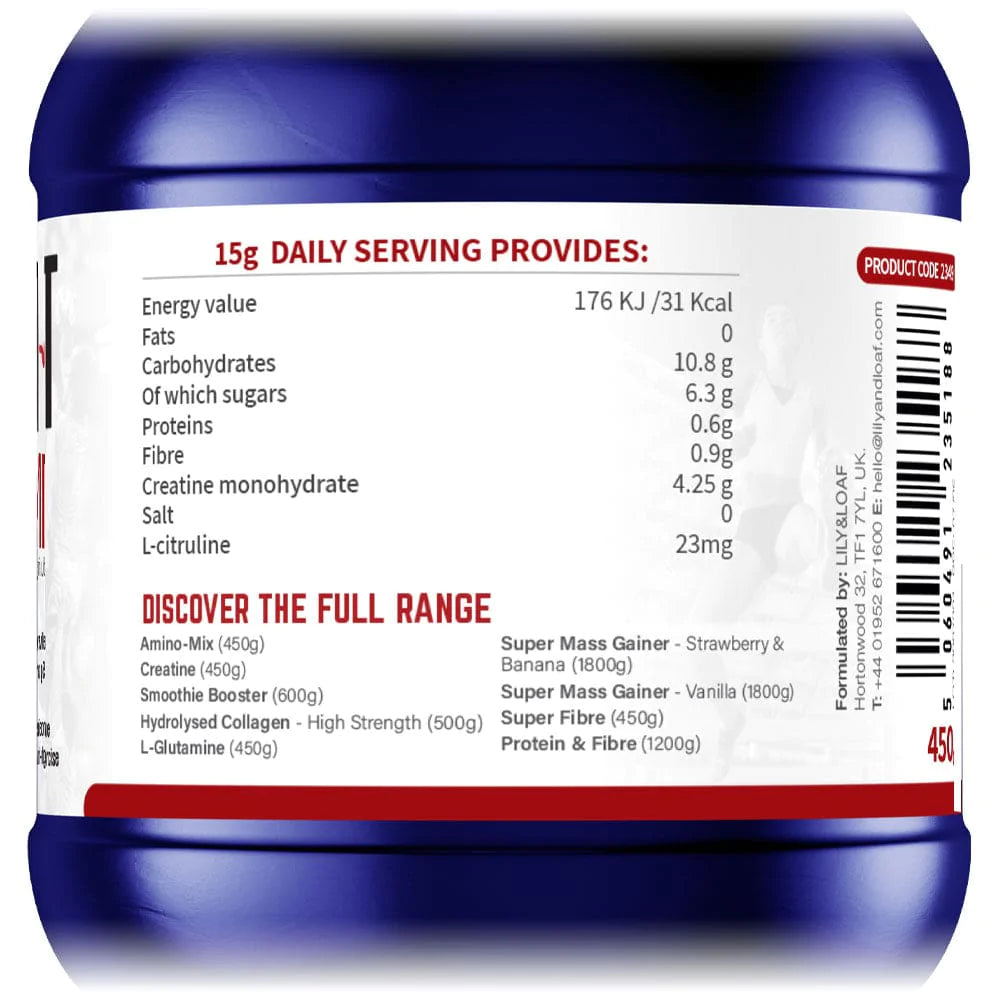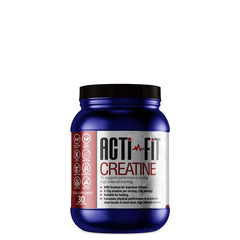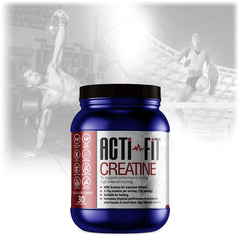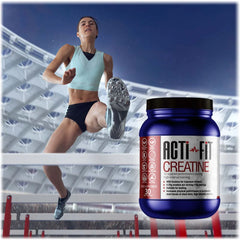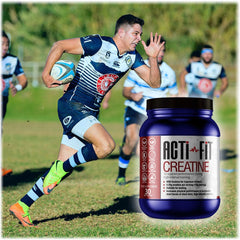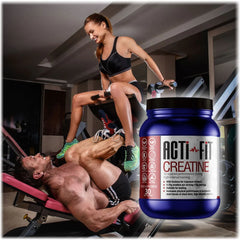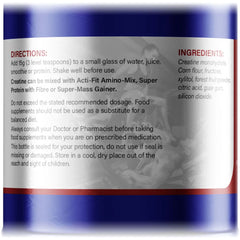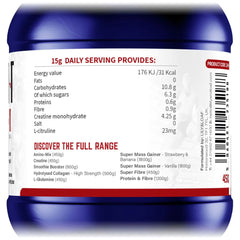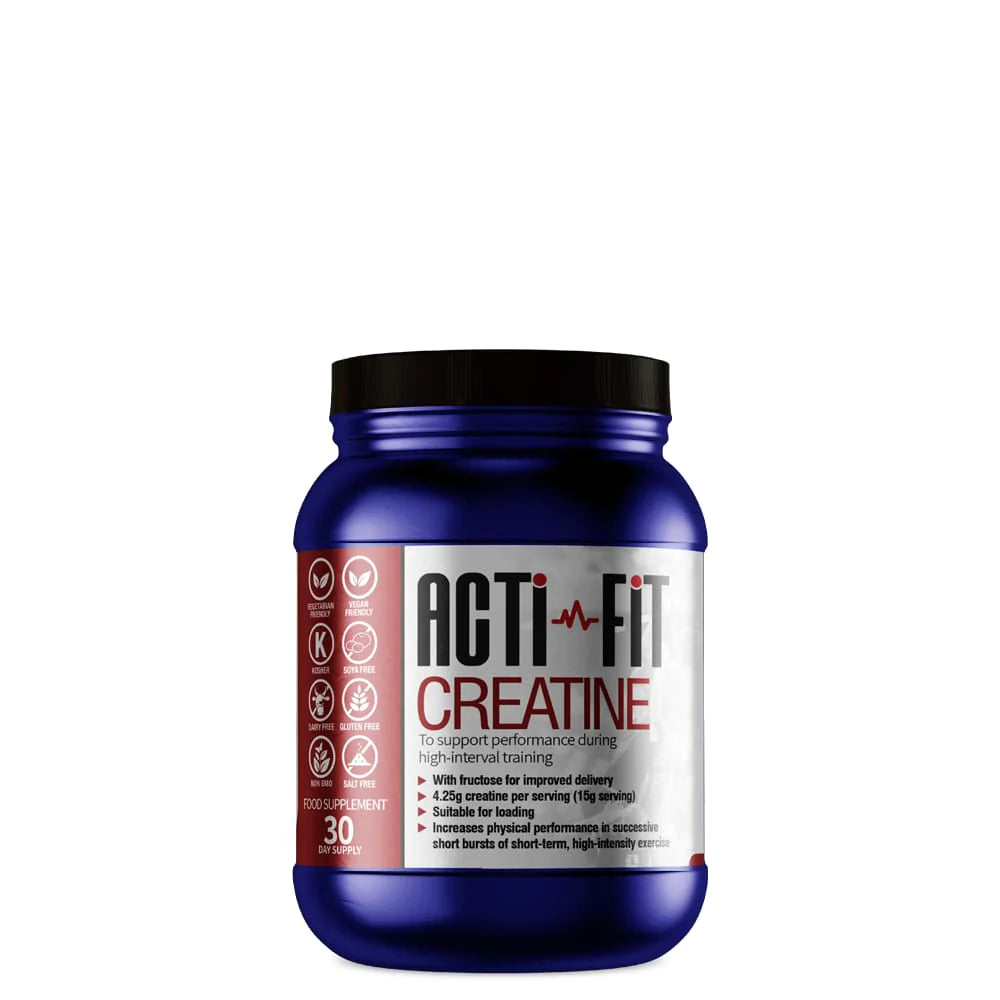- Regular price
- £14.99
- Regular price
-
- Sale price
- £14.99
- Unit price
- per
What is Creatine?
Creatine monohydrate is one of the most researched sports supplements on the market. Used by both recreational gym goers and elite athletes alike. It is a non-essential compound that can be synthesised in the body or obtained through the diet but not to the levels needed to enhance muscle creatine stores.
Creatine plays a critical role in energy production during high-intensity muscle contractions. The benefits of supplementation include: increased power, improved muscle strength & tone, and improved performance in short-term high-intensity exercise. It is popular with powerlifters, bodybuilders, footballers, and sprinters.
Our creatine also includes sugars. When creatine is taken with sugars it causes insulin to be produced. This insulin carries creatine into the muscle effectively. What’s in it? We’ve used creatine monohydrate. This form of creatine is the most researched. ‘Monohydrate’ simply means that the creatine has been linked with a molecule of water for stability. Our creatine also includes fructose. When creatine is taken with sugars it causes insulin to be produced. This insulin carries creatine into the muscle effectively.
How will it help me?
Creatine is a chemical found naturally in the body. It is a derivative of amino acids. Creatine is a molecule that can be naturally produced in the body; it is created in the kidneys and liver by the amino acids glycine, arginine and methionine and then transported to the muscles where it is stored as phosphocreatine, otherwise known as creatine phosphate.
Creatine can be obtained through a small number of foods. It is often used to improve exercise performance and muscle mass. Creatine is involved in the production of energy for muscles. Approximately 95% is found in skeletal muscle. People who have lower creatine levels when they start taking creatine seem to get more benefits than people who start with higher levels.
People commonly use creatine to improve exercise performance and increase muscle mass. It is also used for muscle cramps and fatigue. The use of creatine is permitted by the International Olympic Committee and the National Collegiate Athletic Association (NCAA). Creatine is used within the cells of muscles to help to regenerate energy.
Our muscles and every other cell in our body are fuelled by adenosine triphosphate - ATP for short. As we only have enough ATP at any one time to provide enough energy for 2-3 seconds, our body has numerous ‘energy systems’ that it can call upon to synthesise ATP and thus continue the flow of energy. This pathway provides rapid power and almost exclusively fuels the first 10-15 seconds of intense exercise.
How do I take it?
You can simply take 15g of our creatine mixed with water or juice daily, and you can take it any time of day. Maintain good hydration while using creatine supplements.
Do not use if you have a history of kidney problems.
To support performance during high-interval training
UK RRP: £17.64
- Creatine monohydrate with fructose for superior metabolism
- Increases physical performance in successive bursts of short-term, high intensity exercise**
- 4.25g of creatine per serving
- Suitable for vegetarians & vegans
- 30-day supply
- Full 90-day money-back guarantee*
** Increases physical performance in successive bursts of short-term, high-intensity exercise effect is obtained with a daily intake of 3g per day.
Ingredients
Creatine monohydrate, Corn flour, fructose, xylitol, forest fruit powder, citric acid, guar gum, silicon dioxide.
Nutritional Profile
15g serving provides:
| Energy | 176 Kj / 31Kal |
| Fats | 0 |
| Carbohydrates Of which sugars |
10.8 g 6.3 g |
| Proteins | 0.6g |
| Fibre | 0.9g |
| Creatine monohydrate | 4.25g |
| Salt | 0 |
Recommended Use
Add 15g (3 teaspoons) to a small glass of water, juice, smoothie or protein. Shake well before use.
Creatine can be mixed with Acti-Fit Amino-mix, Super Protein with Fibre or Super-Mass Gainer.
Do not use if you have a history of kidney problems.
Food supplements should not be used as a substitute for a balanced diet. Always consult your Doctor or Pharmacist before taking food supplements when you are on prescribed medication, or pregnant/planning to become pregnant.
Related Products
- Regular price
- £14.99
- Regular price
-
- Sale price
- £14.99
- Unit price
- per
- Regular price
- £14.99
- Regular price
-
- Sale price
- £14.99
- Unit price
- per
- Regular price
- £14.99
- Regular price
-
- Sale price
- £14.99
- Unit price
- per
- Regular price
- £14.99
- Regular price
-
- Sale price
- £14.99
- Unit price
- per
- Regular price
- £14.99
- Regular price
-
- Sale price
- £14.99
- Unit price
- per
- Regular price
- £14.99
- Regular price
-
- Sale price
- £14.99
- Unit price
- per
- Regular price
- £14.99
- Regular price
-
- Sale price
- £14.99
- Unit price
- per
- Regular price
- £14.99
- Regular price
-
- Sale price
- £14.99
- Unit price
- per
- Regular price
- £14.99
- Regular price
-
- Sale price
- £14.99
- Unit price
- per
- Regular price
- £14.99
- Regular price
-
- Sale price
- £14.99
- Unit price
- per
Recently Viewed Products
- Regular price
- £14.99
- Regular price
-
- Sale price
- £14.99
- Unit price
- per
- Regular price
- £14.99
- Regular price
-
- Sale price
- £14.99
- Unit price
- per
- Regular price
- £14.99
- Regular price
-
- Sale price
- £14.99
- Unit price
- per
- Regular price
- £14.99
- Regular price
-
- Sale price
- £14.99
- Unit price
- per
- Regular price
- £14.99
- Regular price
-
- Sale price
- £14.99
- Unit price
- per
- Regular price
- £14.99
- Regular price
-
- Sale price
- £14.99
- Unit price
- per
- Regular price
- £14.99
- Regular price
-
- Sale price
- £14.99
- Unit price
- per
- Regular price
- £14.99
- Regular price
-
- Sale price
- £14.99
- Unit price
- per
- Regular price
- £14.99
- Regular price
-
- Sale price
- £14.99
- Unit price
- per
- Regular price
- £14.99
- Regular price
-
- Sale price
- £14.99
- Unit price
- per
- Choosing a selection results in a full page refresh.








